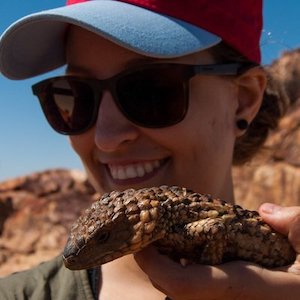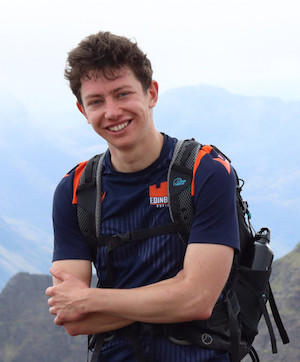By SORTEE | December 3, 2023
The third annual SORTEE conference was held virtually in October 2023, continuously over 24 hours to cover all time zones. There were 266 registered participants from 36 countries. The conference programme included plenary talks, 5 workshops, 5 hackathons and 8 unconference sessions. During the closing sessions two winners were announced for the SORTEE “Student Award” and “Researcher Award”. These awards have been renamed and redesigned to increase transparency, equity and inclusions. In the new award process, nominations were initially assessed for eligibility, then eligible candidates were entered as finalists into a lottery to select the winner for each award. The lottery was run using a random ‘spin the wheel’ program, requiring one re-spin to ensure fulfilment of SORTEE Diversity, Equity and Inclusion policy. The winner of the ‘Student Award’ was: Euan Young affiliated with the University of Groningen in the Netherlands. The winner of the ‘Researcher Award’ was Birgit Szabo affiliated with the University of Bern in Switzerland.
Dominique Roche, SORTEE Past-President.
Birgit Szabo
PostDoc at University of Bern, Switzerland

Can you tell us a bit about yourself and your research interests?
I consider myself a Cognitive Ecologist. My research interests focus on animal cognition and behaviour. I am fascinated by how animals learn, individually and socially, and how the acquired information can help them to cope with the challenges of everyday life. My research asks questions such as how sociality influences learning ability, how parental care affects offspring behavioural and cognitive phenotype, how the sexes learn in different context and how a species ecology shapes its cognitive ability. I am excited about the comparative approach to find out how species differ in their cognition and how cognitive abilities have evolved in different taxa. In this context I am very interested in individual differences and how these might reflect necessary variation to cope with different challenges that might arise within an individuals lifetime but also across generations. I am also interested in how we can use both behaviour and cognitive ability to develop and improve animal welfare and conservation measures.
You won the Researcher PeerJ Award at SORTEE 2023, can you tell us what you have been doing that led to this award?
I have been dedicated to OS practices since starting my PhD at Macquarie University, Australia in 2016 during which I studied the influence of sociality on cognition in lizards. I have been consistently incorporating more and more ORT practices since then. Starting from my first publication out of my PhD, I have made both the raw data as well as the R code I used to analyse data publicly available on different repositories and I continue to do so until this day. Even though a doi to all this material is included in every publication, I also provide a direct link to the data and code on my website to circumvent potential issues with paywalls. My contributions always include meta-data to explain the various data included and the code is simple and fully annotated for easier reuse. I published my first preprint in 2019 and since then I continue to do so for all my first author papers. Since moving to the University of Bern, where I now study social evolution and its link to behaviour, cognition and stress coping as well as welfare in the Tokay gecko (all understudied fields in reptiles), I am also able to publish open access. Nevertheless, I provide earlier, unformatted versions of my articles and associated supplementary material that are not published open access through my website and/or Researchgate. Finally, I always aim to provide the most comprehensive description of my methods following the ARRIVE guidelines as well as providing detailed information on the animals used to improve reproducibility as I test the same individuals across multiple studies to refine methods and reduce the number of test animals without compromising statistical power. Furthermore, I always aim to collect data blind but if this is not possible I always perform inter-observer reliability testing.
Why is open science important to you?
To me, open science is the path to reliable and reproducible research outcomes and better science. I believe that science is a community effort not a single person game. By openly sharing information we are able to work together towards true discoveries and advances in science. We face a reproducibility crisis and only by working together can we overcome this crisis. Open Science also helps in educating each other. By making analysis code freely available in an annotated form we can learn new ways of analysis and improve our own research.
What are your next steps?
In the future, I want to incorporate event more ORT practices in my workflow and preregister studies as well as use version control and power analysis more regularly. I have also joined the ManyManys group because I think that this new movement of big lab collaborations will be the future of science.
Euan A Young
PhD candidate at the University of Groningen, Netherlands

Can you tell us a bit about yourself and your research interests?
My PhD research is driven by an interest in two broad questions. Firstly, can an evolutionary perspective inform our understanding of among-individual variation in human health and disease? Secondly, can humans themselves can be used as a model for understanding evolutionary processes? To these ends, I use a data-driven approach that uses both historical and contemporary sources.
You won the Student PeerJ Award at SORTEE 2023, can you tell us what you have been doing that led to this award?
In the publishing of my PhD first chapter, we aimed to keep the process as open as possible. The study was initially uploaded as a pre-print and then finally published open access, with code, data, and reviewer comments all available for readers to view.
Why is open science important to you?
In particular, the sharing of data and code is very important to me. My research relies a lot on the data handling and statistical analysis that occurs after the data has been collected. When embarking upon such research, you become aware of how many decisions these steps entail. Of course, these details would be included in any published article, but with the sharing of code and data we can allow the verification of these steps with more transparency. This gives others the opportunity to check our work directly and replicate, if desired, increasing the transparency and robustness of scientific findings.
How will you continue to build on this research?
I am very proud to have my first paper published adhering to open-science principles, but I am aware there is always more that we can do, for example, pre-registering articles, and keep fighting to make science more inclusive.
The original version of this blog post by Gavin Morrison can be found on the PeerJ blog. PeerJ donated funds to support this award.

